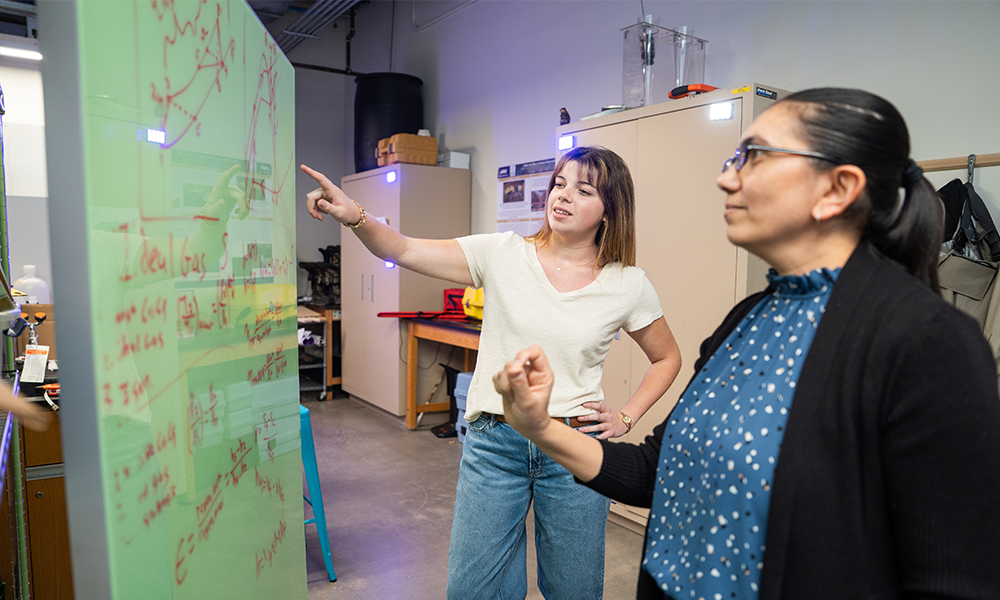JMU recognized for sustainability research
JMU Headlines
SUMMARY: More than 300 JMU scholars, along with JMU Libraries, the Institute for Stewardship of the Natural World, and the Division of Research, Economic Development and Innovation, contributed to this achievement.
James Madison University was recently recognized as a Top Performer in Research in the 2025 Sustainable Campus Index, a national report published by the Association for the Advancement of Sustainability in Higher Education (AASHE).
JMU earned its Top Performer spot in recognition of conducting sustainability research and scholarship; encouraging student and faculty sustainability research; recognizing interdisciplinary, transdisciplinary and multi-disciplinary research in tenure and promotion; providing library support for sustainability research and learning; and supporting open access of published research. More than 300 JMU scholars, along with JMU Libraries, the Institute for Stewardship of the Natural World (ISNW), and the Division of Research, Economic Development and Innovation, contributed to this achievement.
“This recognition reflects the commitment of our faculty, staff and students to address the world’s most pressing challenges through research and scholarship, and through engaged teaching across the curriculum,” said Bob Kolvoord, JMU’s interim provost. “Sustainability is central to JMU’s mission, and we are proud to see that focus acknowledged at the national level,” Kolvoord added.
JMU’s recognition is based on its most recent submission to AASHE’s Sustainability Tracking, Assessment & Rating System™ (STARS®). This was the university’s fifth STARS report and second time achieving a gold rating. JMU was also noted in the Index for its data accuracy.
With more than 1,200 participants across 52 countries, STARS is a global framework that allows colleges and universities to publicly report their sustainability performance.
Those on JMU’s campus can visit the “A Better World, Together” exhibit created by the ISNW and located in King Hall and the EnGeo Building complex that highlights the scholarly work of more than 120 JMU faculty members from various disciplines whose research addresses pressing global environmental challenges.
